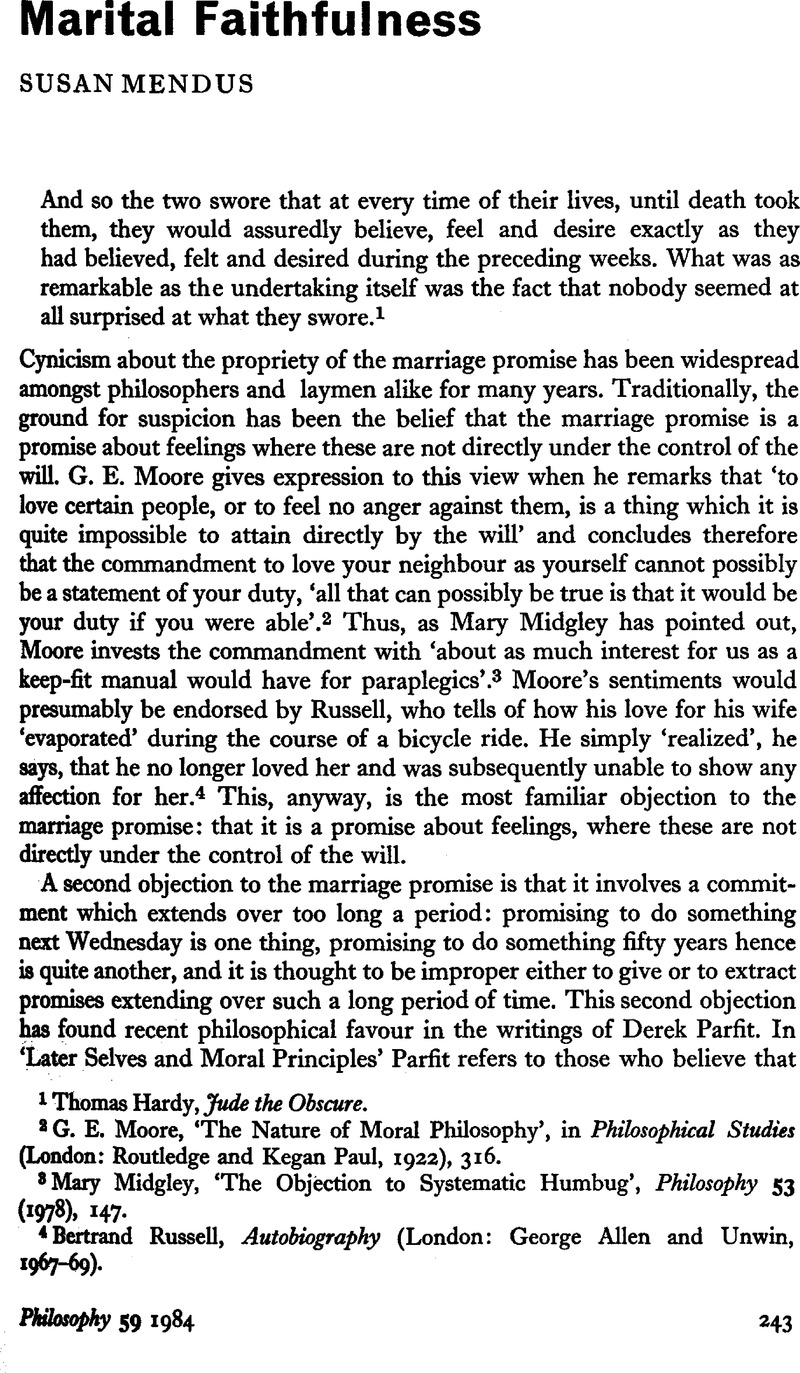Published online by Cambridge University Press: 30 January 2009

1 Thomas Hardy, Jude the Obscure.
2 Moore, G. E., ‘The Nature of Moral Philosophy’, in Philosophical Studies (London: Routledge and Kegan Paul, 1922), 316.Google Scholar
3 Midgley, Mary, ‘The Objection to Systematic Humbug’, Philosophy 53 (1978), 147.Google Scholar
4 Russell, Bertrand, Autobiography (London: George Allen and Unwin, 1967–1969).Google Scholar
5 Parfit, Derek, ‘Later Selves and Moral Principles’ in Philosophy and Personal Relations, Montefiore, A. (ed.) (London: Routledge andKegan Paul, 1973), 144.Google Scholar
6 P.145.
7 Pp. 145–146
8 Pp. 14, 161–162.
9 Malcolm, Norman, ‘Knowledge and Belief, in Knowledge and Belief, A., Phillips Griffiths (ed.) (Oxford University Press 1967), 81.Google Scholar
10 P.78.
11 Shakespeare, W., A Midsummer Night's Dream, Acts III and I.Google Scholar
12 W., Newton-Smith, ‘A Conceptual Investigation of Love’, in Philosophy and Personal Relations, Montefiore, A. (ed.) 132-133.Google Scholar
13 Lurie, Alison, Love and Friendship (Harmondsworth: Penguin, 1962) 329-330.Google Scholar
14 As quoted in Casey, J., ‘Actions and Consequences’, from Morality and Moral Reasoning, Casey, J. (ed.) (London: Methuen, 1971), 201.Google Scholar
15 W. Shakespeare, Sonnet 91.
16 I wish to thank my colleague, Dr Roger Woolhouse, for many helpful discussions on the topic of this paper.